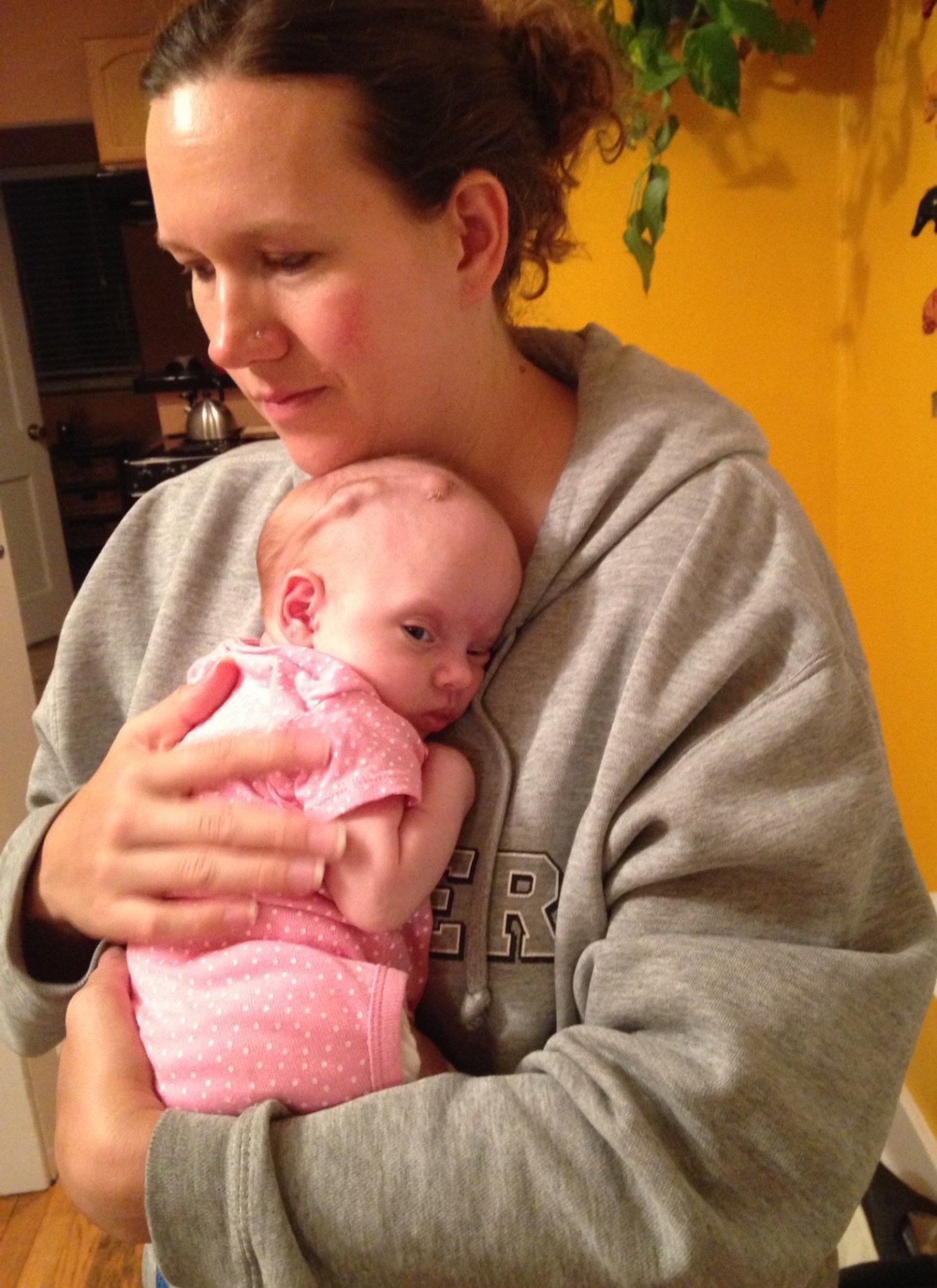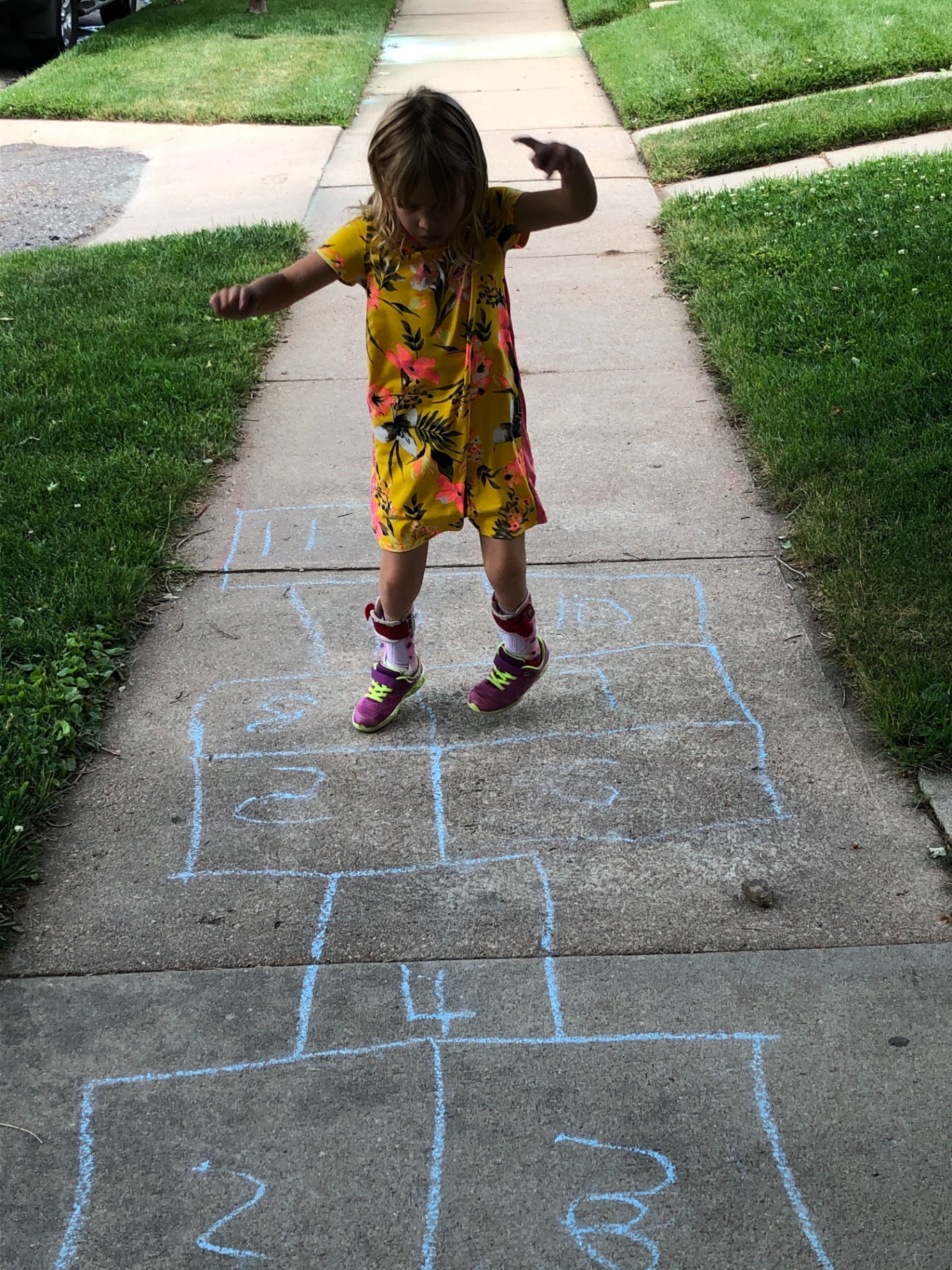Anxiety – Lessons Learned While Being a Mom to a Child with a Disability

I remember going into my 20-week ultrasound excited and happy to learn more about our baby. We were going to learn the gender and so much about the future seemed to ride on this revelation. I didn’t know that there would be another revelation that would determine much more about the future. During that ultrasound my husband and I found out that our baby girl would be born with a life-long medical disability called Spina Bifida, one of the most common birth defects in modern day.
Through a series of intense medical screenings and tests it was determined that our baby was not moving her body below the waste. She did not appear to have any brain damage and would likely be cognitively fine. Her heart was strong, and she would be born through a planned c-section the minute it was safe to bring her into this world.
We planned her birth day and scheduled with a special clinic for mom’s just like me, situated next to the NICU in the Children’s Hospital. Now, I just had to wait until I was 38 weeks pregnant to know that she would be ok. I had to find a way to peacefully sit with every day, knowing that the amniotic fluid she floated in while continuing to grow, was slowly killing the nerves exposed through the hole in her back. This began my lesson in managing anxiety.
While I knew that the nerves were being harmed, I also knew that the other vital organs in her body were not completely ready for the world; that being born premature would make things even more challenging. I practiced mindfulness, meditation, and reality testing (checking for a heartbeat with the heart monitor loaned to me by my sister-in-law every couple of hours for weeks).
She was alive and she would be born on that planned date in that special clinic. She would live her first 10 days of life in the NICU and have 2 major surgeries before ever leaving the hospital. My husband and I learned how to care for her given the specifics of her paralysis and medical needs. We brought her home and began a long-term relationship with a handful of specialists including orthopedic surgeons, pediatric neurosurgeons, urologists, and physical therapists to name a few.
It was easy to become overwhelmed and scared about the future. Anxiety and fear could swallow my breath right out from inside of me and my heart would feel like it was drowning, fighting for air. But, that little girl came out into the world, ready to live and ready to teach us and everyone around her so much.
Here are a few of the things I’ve learned about anxiety from being her momma.

Moving slow
My daughter was born with paralysis below the waist, but not as much as the doctors first thought. It took a lot of work and a lot of perseverance, but she did learn to crawl and eventually began taking steps on her own when she was 3 years old. Now a days she walks completely on her own with an interesting gait and an often questionable sense of balance. Each step is intentional and takes a tremendous amount of energy, but it is earned and celebrated.
She forces me to slow down. I never realized how much keeping up, moving quickly, and getting things done created so much anxiety. But, now that I walk hand in hand with her most days and I watch the people around us getting upset that we are moving slowly, I understand. There is no time to notice the present when you are always thinking about the next thing, moving quickly to get to that obligation, and feeling irritated with the things that get in your way or slow you down. You miss the feeling of moving slowly and seeing the world around you. You cannot feel your body and how it responds, what it needs – my daughter has to notice her body to make it work because she doesn’t have the same strength and muscle usage that others do, and I, as her mother, have to be slow enough to keep up with her.
When I move too quickly it throws the equilibrium of the moment out of whack and everyone ends up getting upset or worse, physically harmed. So, the next time you see a little girl and her mother moving slowly in the check-out line at the grocery store or crossing the street far too slowly for your needs, think about that moment and how much intention, mindful regard, and hard work each step takes – and take a deep breath.
Ain’t no such thing as perfect
Although she is still young, my daughter often notices the things about her that are not perfect. In my work as a therapist, I’ve known many people whose anxiety is related to being noticed for doing something wrong, being different, or having people looking at them for some reason or another. Since my daughter has some very obvious differences, she has been forced to grapple with this from her very first day of life.
Everywhere we go people stop and look at her. Some people point or ask what’s wrong with her and some people go out of their way to say nice things to her. Now, she is at an age where her peers point out all of the things that are different or “not right” about her (she’s also been known to do this to her peers as well:). She wears braces on her feet and legs to provide balance and structure. Her left hip isn’t fully formed and this causes her to swing her body a little more to move her left leg and her knees bend to the right. Her physical therapist called this “windswept” like her body was accommodating to a strong wind. She’s also fully aware of what she looks like and what her body can and cannot do compared to other bodies.
Since she has gotten older we have had a lot of conversations about perfection and why the idea of it is harmful. Firstly, neither she nor I have ever had the opportunity to see her body as perfect. It is beautiful and amazing and needs a lot of help for daily activities. We live in a reality that puts her body at center stage, thinking about surgeries, doctors, and how to keep her safe and healthy. She doesn’t have the luxury of worrying about what it would be like to trip and fall in front of the whole school because this is something that happens sometimes. She just picks herself up and tells everyone she’s fine or cries when it hurts or when it has scared her.
Having a feeling of self-empowerment is important to fend off anxiety
And parents, we need to allow our children to have this feeling, even if it means they fail first.
You might be out at a playground later this week, and see an obviously differently abled child, trying to jump from one structure to another, or cross the monkey bars, or race another child who can run a lot faster. You might think to yourself, ‘is that safe,’ ‘should she be doing that’? You would be having all of the thoughts I have had throughout my daughter’s life. Yet, anyone who knows her knows that she wants to conquer all things physical. She wants the feeling of pride in accomplishing things people say she shouldn’t be able to do. She has always been this way.
It is one of the ways we, as caregivers, have allowed her to live with her disability without too much anxiety – giving her the opportunity to test her limits and learn how to make accommodations for success. This means that we all have watched her fall often, we have held her when she’s cried or hurt herself, when others have laughed or made fun of her attempts, and we’ve let go when she’s gotten angry and said she’s going to do it again.
As a play therapist I have sometimes noticed the children I work with, to help manage anxiety, play out situations in which they have control and can conquer something challenging. Believing that you have control over anxiety is one of the most important pieces in living a healthy life with anxiety. This doesn’t mean that we never fail or never get sick or hurt. It just means that we have had experiences in life that have allowed us to believe we will be ok when these things happen.
It’s not that me or my daughter live an anxiety free life. I feel a great deal of anxiety often thinking about her daily experiences and her health. But, it does seem that this disability has given my family the opportunity to learn a little bit about living with the things that cause us worry. We have had to find peace in moments that feel like they might be impossible to live through. And we have lived. We have slowed down when needed and have faced the hard thing head-first, even if it seemed like we would fall down in front of everyone or fail in epic fashion. Hopefully the things we have learned will help you or your child too.
Written by April Galligan, LCSW IMH-E©
Owner and Therapist at UpliftME Attachment-Based Therapy where we help children and families from birth to 25 years of age.
April’s husband has also written a heart-felt essay about their journey with Spina Bifida https://mudseasonreview.com/2018/08/nonfiction-issue-39/

